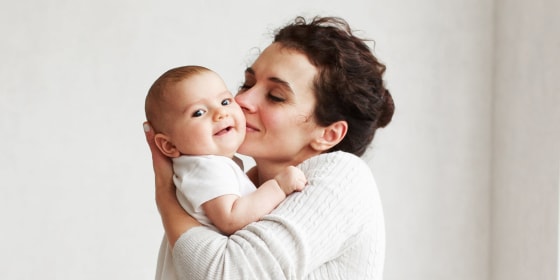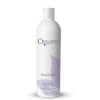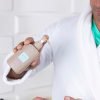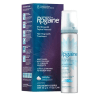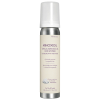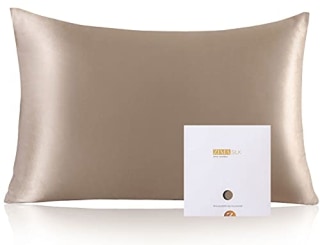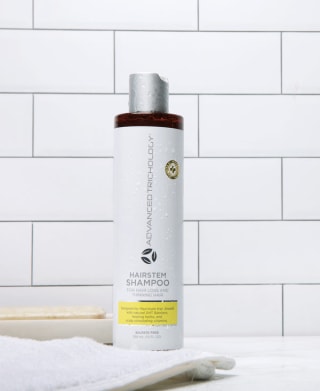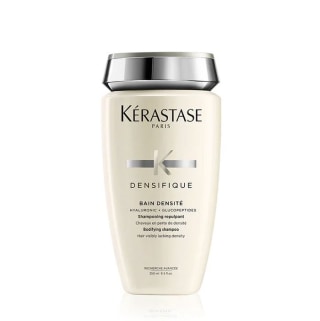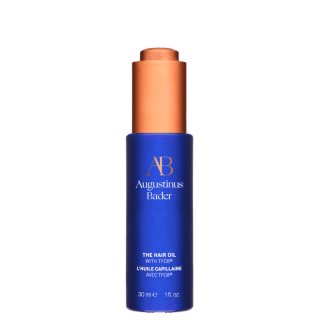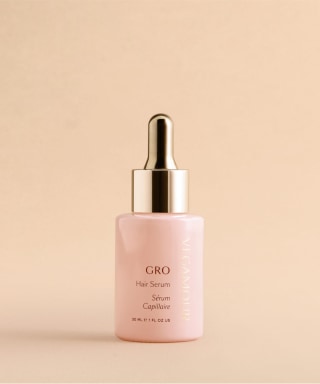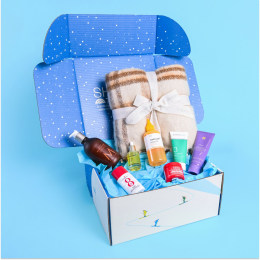Many new moms feel shocked and alone when they start to see patches of thinning hair after having a baby, but this pesky part of the postpartum journey is far more common than you may think.
According to the American Pregnancy Association, it's totally normal to experience hair loss after giving birth. It can also take up to a year for your hair to return to its normal state.
Although temporary, postpartum hair loss can be confusing at best and concerning at worst, especially when your body is already undergoing all kinds of others changes.
The good news? You don't have to navigate it alone. There are several ways to fight back against postpartum hair loss, ranging from simple tweaks to your hair care routine to the use of hair products that target the root causes of hair loss.
Whether you're about to give birth and want to get a leg up on your postpartum hair loss journey or you're in the thick of it right now, the Shop TODAY team is here to support you.
We spoke with a range of experts to find the best options for your budget and lifestyle. We also asked for their tips on managing birth-induced hair loss and what to look for in products that work.
How to prevent postpartum hair loss
Before we dive in, you might be wondering if it's possible to prevent postpartum hair loss before it even starts.
Completely avoiding postpartum hair loss is challenging since it is a natural result of the hormonal fluctuations. But Dr. Hannah Kopelman, a hair loss specialist in New York City, assures her patients that overall health management can play a positive role in the process.
“I advise my patients to focus on a balanced diet, adequate rest (if possible) and stress reduction. Nutrient-rich diets — particularly those high in iron, vitamins and protein — are beneficial for hair health,” Kopelman says.
Expert-approved products to help with postpartum hair loss
“Nourishing” formula: Ongaro Beauty Probiotic Shampoo
- Great value for the price
- Some dislike the scent
Size: 12 oz. | Key ingredients: Organic aloe barbadensis leaf extract, glycerin | Hair type: All hair types | Fragrance? Yes
“This nourishing, sulfate-free formula is designed to promote a healthy scalp and hair. It’s infused with probiotics and apple stem-cells,” Mandy Buechner, a certified trichologist from Thairapy Wellness Center, says.
“It helps balance the scalp’s microbiome, boosting hair growth and overall hair health. It also contains clean, natural ingredients like aloe vera to hydrate, soothe and protect hair, leaving it soft, shiny, and revitalized.”
Softer on your hair: Zimasilk 100% Mulberry Silk Pillowcase
- Material is soft on hair
- Won't prevent hair thinning
Size: 20" x 30" | Material: Silk | Hair type: All hair types | Fragrance? No
According to Dr. Melissa Dennis, MD, using a real silk pillowcase decreases friction on the scalp while sleeping, which can help mitigate the hair from shedding, falling out and flattening. This pillowcase is made from 100% mulberry silk and it comes in a dozens of colors.
Formulated by doctors: Folliflo Hair Boost Shampoo
- Boosts volume
- Leaves hair feeling soft
- Some aren't font of the scent
Size: 8 oz. | Key ingredients: Redensyl, saw palmetto (serenoa serrulata), biotin | Hair type: Thinning | Fragrance? Yes
Kopelman likes Folliflo’s line of products, calling out this shampoo, the matching conditioner and conditioning serum.
“I recommend Folliflo for its [...] formulation that has shown to have benefits for people experiencing hair shedding and androgenetic alopecia. It is a great option for those seeking a holistic approach to hair loss,” she says.
Helps promote hair growth: Advanced Trichology DHT Blocking Shampoo
- Targets many hair loss causes
- Not widely available online
Size: 10 oz. | Key ingredients: Biotin, saw palmetto, tea tree oil | Hair type: Thinning hair | Fragrance? Yes
“Dihydrotestosterone (DHT) is a hormone thought to be responsible for hair shrinkage and loss. This shampoo is formulated with saw palmetto, a botanical ingredient, that is thought to inhibit the activity of DHT and promote hair growth,” Camp says.
The cruelty-free product is formulated without sulfates and propylene glycol and targets the causes of hair thinning. As an added bonus, it’s been accepted by the American Hair Loss Association.
For more volume: Kerastase Densifique Bain Densite Shampoo
- Adds volume to hair
- Reviewers enjoy the scent
- Some reviewers say it's drying
Size: 8.5 oz. | Key ingredients: Hyaluronic acid, ceramides, gluco-peptide | Hair type: Fine, medium and thick | Fragrance? Yes
This multitasking thickening shampoo banishes scalp build-up, strengthens, thickens and adds shine to a wide range of hair textures, including straight, wavy and curly.
“It helps to increase hair density and add volume, which is helpful during the postpartum period,” Dr. Dara Spearman, board-certified dermatologist and owner of Radiant Dermatology Associates, says.
Tried-and-true product: Rogaine Hair Regrowth Treatment
- It's widely available
- Foam, so it doesn't run
- Tried-and-true formula
- Some reviewers saw no change
Size: 2.11 oz. | Key ingredients: Minoxidil | Hair type: Thinning | Fragrance? No
When you think of hair loss solutions, the first thing that comes to mind is probably Rogaine.
“Rogaine is an important remedy for hair loss in both men and women, thanks to its key active ingredient: minoxidil,” says Kopelman. “It’s affordable, safe to use [and] an over-the-counter treatment, which makes it a convenient option for those seeking to address hair thinning issues without the need for a prescription as long as you’re not [still] pregnant or breastfeeding.”
Dr. Jacqueline Watchmaker, a board-certified dermatologist with U.S. Dermatology Partners Scottsdale, is also a fan of the product. "It is easy to apply (once daily) and relatively inexpensive," she says.
Foam solution: Virtue Women’s 5% Minoxidil Foam
- Made reviewers' hair fuller
- Easy to apply
- Foam isn't runny
- Some dislike product packaging
Size: 2.11 oz. | Key ingredients: Minoxidil | Hair type: Thinning | Fragrance? No
If you're looking for an over-the-counter hair growth solution, MDCS Dermatology double board-certified dermatologist Dr. Brendan Camp suggests giving this foam formula a try.
"Topical minoxidil is thought to help keep hair in the growing phase, also known as anagen," he says.
Per the brand, the product is ideal for moderate to severe hair loss and reactivates hair follicles to simulate growth.
Camp also provided one handy tip of advice.
"Avoid letting topical minoxidil drip down your face when applying it as it can promote hair growth in unwanted areas like the upper lip," he said.
Formulated with vitamin E: Augustinus Bader The Hair Oil
- Multitasking formula
- Small bottle for the price
Size: 1 oz. | Key ingredients: Argan oil, castor seed oil, pomegranate oil | Hair type: All hair types | Fragrance? No
“Vitamin E, sunflower seed oil, argan oil and castor seed oil are featured in this lightweight, fast-absorbing oil that promises to boost thickness and volume while reducing breakage and split ends,” Camp says.
Per the brand, the oil also detangles, nixes frizz, hydrates and boosts shine. Talk about a multitasker!
For fuller-looking hair: Vegamour GRO Hair Serum
- Many noticed a difference
- Not much product
Size: 1 oz. | Key ingredients: Turmeric, caffeine, biotin | Hair type: Thinning | Fragrance? No
This serum "is designed to promote healthier, fuller hair," Buechner says. "It works to nourish the scalp, strengthen hair follicles and support hair growth, all while being gentle on hair and the environment." She continues, "It’s a great choice for those looking for a sustainable, effective and non-toxic solution for their hair care needs while breastfeeding or recovering from childbirth."
Per the brand, this hair serum helps hair appear more dense, improves shedding and strengthens strands.
What is postpartum hair loss?
Postpartum hair loss — known medically as telogen effluvium — is a direct result of the hormonal fluctuations that happen throughout pregnancy and continue after childbirth, which is what makes it so common.
“The hair on our heads is always either actively growing, resting in place or falling out. This cycle is disrupted during pregnancy due to high estrogen levels, resulting in more hair actively growing than resting and falling out. This is why many people feel their hair is thicker and fuller during pregnancy,” OB-GYN Dr. Melissa Dennis explains.
“Unfortunately, this luxurious hair does not last forever. After delivery, estrogen levels drop precipitously and all of that extra hair the body held onto during pregnancy will shift into the resting phase and shed three to five months later.”
What to look for in products for postpartum hair loss
Kopelman advises looking for products containing the following ingredients to help with hair regrowth:
- Biotin: Also known as vitamin B7, biotin is essential for the health of hair, skin and nails. It plays a key role in the production of keratin, a protein that is a primary component of hair.
- Keratin: Think about keratin as the building blocks for hair follicles — a protein that makes up the structure of hair and nails. Products containing keratin can help improve the appearance and texture of hair by strengthening it, reducing breakage and increasing elasticity. This can result in hair that looks fuller and healthier.
- Minoxidil: Minoxidil is a topical medication originally used to treat high blood pressure, but was later discovered to have hair growth-promoting effects. “When applied to the scalp, it can stimulate hair growth and slow down hair loss,” Kopelman tells us.
- Ketoconazole: Ketoconazole is an antifungal agent used in some shampoos to treat dandruff and seborrheic dermatitis, but has also been found to have a positive effect on hair growth. “It helps to lower sebum levels around hair follicles that have a concentration of testosterone. And it is also believed that ketoconazole might block 5 alpha reductase which helps to decrease DHT levels in the blood, which can be a big contributor to hair loss,” says Kopelman.
- Zinc: Zinc is a mineral that plays a vital role in hair tissue growth and repair. It also helps keep the oil glands around the follicles working properly. Hair loss is a common symptom of zinc deficiency, so using products with zinc can help maintain healthy strands.
Frequently asked questions
According to Dennis, those who develop anemia and diabetes during pregnancy, have a history of thyroid problems or hair loss or who have higher stress levels can be predisposed to more significant hair loss.
It is difficult to predict who will maintain thicker hair, who will return to their pre-pregnancy baseline and who will lose hair to the point of visible thinning. But there's no need to worry too much; Dennis says most people will begin to see hair return by their baby’s first birthday.
“Seeing excess hair falling out can be startling. It is important to remember that postpartum hair loss is a normal part of the postpartum experience for many individuals and it is time-limited,” she reminds people.
The experts offered a few more tips to help new and returning mamas get through the hair loss period with confidence:
- Volumizing shampoos and conditioners can help hair look fuller.
- Handle hair gently and avoid high-tension hairstyles that pull or strain the hair, such as tight ponytails, buns, braids or cornrows. If pulling the hair back, do so loosely with a soft tie or hair wrap.
- Minimize the use of heat-styling tools and steer clear of harsh chemical treatments, as they can damage the hair, cause additional hair loss or breakage and delay regrowth, Dennis advises.
- Opt for a haircut, style or accessories that make hair appear fuller in thinning areas and is easier to maintain. This is always best addressed by a stylist as everyone’s hair is different, but Dennis said she got a fun pixie cut to make her own hair look a bit more bold and full.
- Try scalp massages to help promote blood circulation (and help unwind).
- Pay attention to self-care whenever possible; ask for help and find moments to unwind during the final trimester to de-stress.
- Eat nutrient-rich foods that naturally contain vitamins like B7 to help hair skin and nail health. Such foods include eggs, salmon, avocados, walnuts, almonds, mushrooms, broccoli, spinach, carrots, sweet potatoes and yogurt.
If excessive hair loss continues beyond a year postpartum, if there is seriously visible hair thinning or if you're breastfeeding, be sure to consult your doctor before using any topical products.
How we chose
We chose products that were not only recommended specifically by experts, but that also meet their guidelines for what would be considered helpful for postpartum hair loss.
Meet the experts
- Mandy Buechner is a certified trichologist from Thairapy Wellness Center.
- Dr. Brendan Camp is a double board-certified dermatologist at MDCS Dermatology.
- Dr. Melissa Dennis, MD, FACOG, is the chief medical officer at Partum Health, where she helps provide interdisciplinary perinatal support that complements the care patients receive from their obstetricians and midwives.
- Dr. Hannah Kopelman is a hair loss specialist at Kopelman Hair Restoration in New York City where she often counsels patients on postpartum hair loss. She has two fellowships in dermatology, including hair loss from Columbia University and cutaneous oncology from Boston University.
- Dr. Dara Spearman is a board-certified dermatologist and owner of Radiant Dermatology Associates.
- Dr. Jacqueline Watchmaker is a board-certified dermatologist with U.S. Dermatology Partners Scottsdale.


